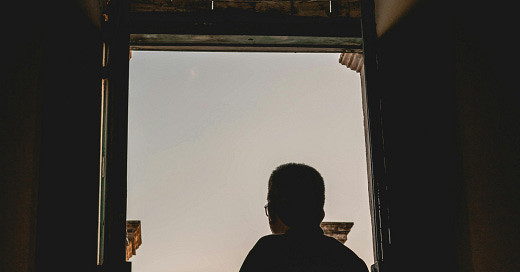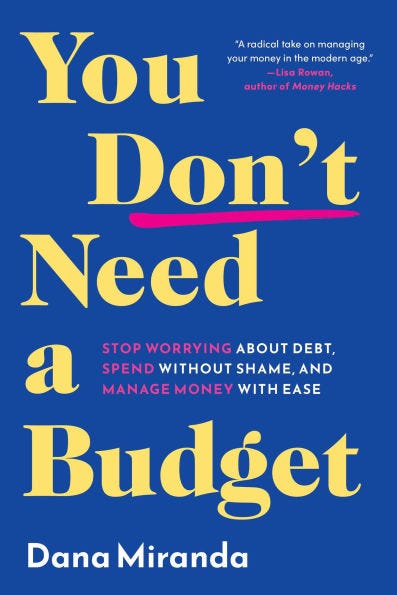The Sizable Price Of Adult Life: Too Much Letting Go
I’d really rather hold on, thank you very much.
If I tilt my head just right, I can picture my dad sitting at the dinner table on his first day in the rehab facility. When he needed shoulder surgery, he also needed help to get dressed, to go to the bathroom, and even to eat. A famously private man, he didn’t want me to be the help.
He traveled light to rehab. The industrial grade toothbrush they gave him made it look like no one cared about him. I wondered who would keep him safe in this world full of falls and indifferent caregivers. He couldn’t reach the phone. Would the staff know that he’s precious to me and other people?
Even with my worries, it was time to start the hour drive back home. Or, wait, maybe I should quit my job and move to his tiny town. Should I?
Instead, I wheeled him to the dining room for dinner, and pushed his chair to the table where the nurse pointed. I fiddled with his shirt collar until I drove us both nuts, and then kissed him on the cheek and headed for the elevator.
Rounding the corner, I passed the kitchen door. As the cooks loaded meatloaf onto plates, I looked through the window and tilted my head, looking past them to a sliver of the dining room. On tiptoe, if I moved my head just right, I could see my dad sitting at the table. I scanned for clues. Were the other kids being nice to him? Was he eating?
When we leave a child at kindergarten or camp, send them to basic training or college, we imagine that they will come back more independent, wiser, more skilled. They’ll learn to read or think or make friends. Parents of kids on other paths know the hard kind of leaving. Seeing your child onto the bus for a program you deeply hope with see them as they are. Or settling them into their stripped-down bed in the mental health facility, pajamas and flip-flops in a paper bag. Some parents don't know where their kids are right now.
Leaving a parent, though, is always a step toward decline. It only leads to more leaving.
If I had known that adult life involved so much letting go, I would have skipped it. Some leave-taking leads to growth: leaving abusive people behind. The gift of shedding old values for a new freedom. Learning to ask yourself what you want, instead of following someone else’s list. Coming out and leaving the old self behind. Still, it’s all hard.
With my dad, the next-to-last leaving happened a few years later, when I left him for an hour, and he took his final breath alone, apparently the way he wanted it. He out-waited me and then my brother, never wanting to be a bother.
The last leave-taking came when my brother tipped his ashes into the ground, near where he did the same service for our mother. My sister-in-law held me upright, and dear friends stood nearby, after traveling for hours to be there.
Every act of letting go flays off a layer of what we know, until our bare hearts are left stumbling through the world. So much is gone, and still, if I tilt my head just right, I can call my beloved people back, through a different window now.
The book that made me think: You Don't Need a Budget by Dana Miranda. Dana Miranda wants us to think about money with purpose and freedom, instead of shame about everything we’re doing wrong. A lot of money advice is organized for middle class people who have money, and is full of judgment, especially for poorer people.
She observes, "The advice about money we tend to receive throughout our lives focuses on how to get more and give away less of it. Budget culture treats money as the end goal itself, so all of the available information and advice is focused on having money in the end. That misses the point of using money to live a life."
Dana Miranda recommends renaming the famous “emergency fund” as a “comfort fund.” Now we’re not waiting for the world to collapse; we’re using our savings for, say, more school, or to visit a dying relative, or to get to a friend’s wedding. Too many people, she notes, “suffer through untenable situations while sitting on a well-endowed “emergency fund” because their needs don’t feel like an emergency. Using the term comfort fund reminds you you’re worthy of the comfort money can buy, no matter your income, how you work, or how you spend. And you get to decide what those comforts are; don’t let budget culture set your standards for you."
She has a lot to say about debt, including: “Debt isn’t, in fact, a vehicle for overconsumption in our culture; it’s a means of capturing resources in a culture that expects way too much of everyone and pays way too little to most. Just as with everything else in budget culture, proponents of debt payoff cite basic individual responsibility: you signed an agreement and borrowed the money; you must pay it back. The concept that a responsible person ought to repay any money they borrow sounds straightforward—until you layer in the realities of our society:
• Wealth and income gaps increase some people’s need for credit to meet everyday commitments and participate equitably in job and social markets.
• Legal discrimination in credit scoring taxes marginalized people with higher interest rates that increase how quickly debt balances grow. Predatory marketing and promotions distract borrowers from the risks of the complex agreements they sign.
• An insufficiently regulated business model incentivizes lenders and credit card companies to encourage you to carry a balance that costs you money.
• Intentionally complex debt products operate on systems of scoring, interest, fees, billing dates, minimum payments, and compounding that most people don’t have the capacity to unravel during a financial decision. The notion of individual responsibility assumes you’re entering a credit card or loan agreement in good faith, and it’s easy to argue that any decent person should do that. But the lenders and credit card companies are not entering these agreements in good faith.”
See what you think.








Oh, Mary. My vision is still so blurry I can barely see to type. You've written many poignant posts in the past, but for some reason this really slipped between my ribs. Maybe it's the new baby who peeled off a layer of armor. Or trying to care for my aunt from a thousand miles away. In the past few weeks, I've felt the urge (though resisted it so far) to get down on my knees and pray. To whom and for what I don't know. Then again, maybe it's just hormones. For now I'm trying to stay awake and listening. Thank you as always for your wisdom.
Thank you for this reflection. I wish we could snap our fingers and fix the world.
Part of letting go of a difficult past is acknowledging that it happened. The people involved (?parents?) had many things happen to them to make them the people they were. Once their circumstances become clear we can let go of our past hurts and theirs. Acknowledgement and letting go isn’t the same thing as repression.
Buddhist philosophies of impermanence help me a lot.